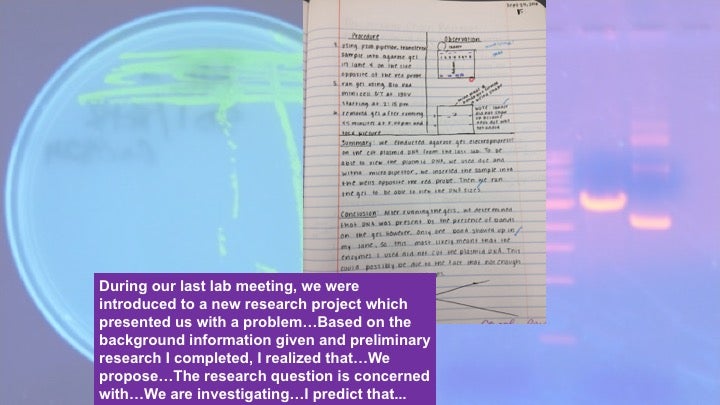Spring 2024 COURSES
- FWIS 203 True Crime and Crime Fiction
- FWIS 209 Contemporary Art and Environment
- FWIS 210 Jews on Film
- FWIS 211 The Meaning and Impact of Quantum Mechanics
- FWIS 215 Exploring Biological Research Challenges
- FWIS 218 Bad Moms: The Rhetoric and Reality of American Motherhood
- FWIS 219 The Beauty of the Beast
- FWIS 220 Fiction and Empathy
- FWIS 221 Time Travel Narrative
- FWIS 226 Animal, Plant, Mineral
- FWIS 230 Writing Everyday Life
- FWIS 234 Deep Cuts: Medicine at the Movies
- FWIS 237 Popular Music and American Culture
- FWIS 240 Film, Fiction, and History
- FWIS 241 Technologies of Taste
- FWIS 243 Natural History of Texas
- FWIS 251 Making Sense of Ourselves
- FWIS 252 The Science of Supplements
- FWIS 254 The Good, the Bad, and the Border
- FWIS 257 Travel and Modern Asia
- FWIS 260 Global English
- FWIS 263 Sex, Death, and Spiritual Writing
- FWIS 273 LGBTQ+ Literary Classics
- FWIS 274 Sounding the City
- FWIS 277 Storytelling in Buddhism
- FWIS 280 Innovation in Educational Technology
- FWIS 281 African - American Graphic Novel
- FWIS 282 Border Politics: Migrations and the Meanings of the Nation
- FWIS 286 Subcultures in East Asia
- FWIS 288 Eng Design & Communication
- FWSI 290 Black Contemporary Art
- FWIS 291 The Art of the Short Story
- FWIS 293 The Rule of Law and the Pursuit of Justice
- FWIS 296 Business in the American Imagination
- FWIS 297 Science or Pseudoscience
- FWIS 298 Climate Change & Climate Justice
 |
Whodunit? Investigating True Crime and Crime FictionFWIS 203, Els Woudstra, WF 4:00pm - 5:15pm It was Colonel Mustard, in the library, with a candlestick! In crime fiction, readers can investigate the crime alongside the fictional detective by following the clues sprinkled throughout the narrative. But while a crime fiction writer like Agatha Christie can plot her murders ahead of time, journalistic and legal investigations of true crimes depend on the careful, ethical examination and interpretation of forensic evidence. When we read or listen to crime stories, how can we know if the story accurately presents the facts? This course investigates the construction of evidence in crime fiction and true crime, by studying several classic crimes, and their adaptations in film, literature, and podcasts. By becoming familiar with the rules of evidence in true crime journalism and crime fiction, we will examine how the presentation of evidence in a crime story influences our understanding of the case, and navigate the distinctions between ‘truth’ and ‘accuracy.’ |
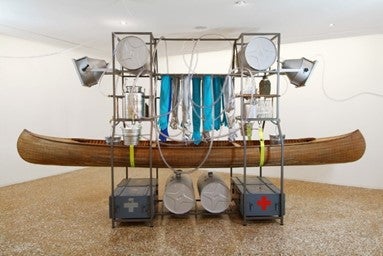 |
Contemporary Art and EnvironmentFWIS 209, Lina Dib, TTh 10:50am-12:05pm This course delves into questions of environment, ecology and sustainability through the lens of contemporary art. From earthworks, to performance, to land art, activist art, and community-based practices, participants engage critically and creatively with various contemporary practices. We discuss works that put art and environment into conversation by using landscapes as raw material and by highlighting our relationship to local and global ecological systems. Throughout the course, we explore how art provides ways to rescript interactions with our environment. Students work to design and create their own projects. Because of the interdisciplinary nature of much of the work we view, discuss, and propose, we read across a wide range of disciplines, including media studies, design, urban planning, humanities, art and anthropology. The course involves excursions to landfills, museums, gardens and other visits led by experts. |
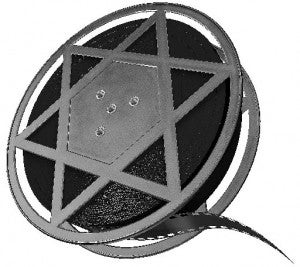 |
Jews on FilmFWIS 210, Ofra Amihay, MWF 11:00am - 11:50am This course will explore the modern history and culture of Jews in America, Europe, Israel, and elsewhere through the medium of film. Students will be exposed to a diversity of Jewish communities around the globe while at the same time examining the way those communities are represented on film. The course will be organized around various themes and ideas that have shaped the Jewish experience in modernity, including secularization, immigration, assimilation, nationalism, race and ethnicity, gender and sexuality, and religious practice. By situating the films in their historical, cultural, and political contexts, students will learn about the varied and changing forms of modern Jewish identity. |
The Meaning and Impact of Quantum MechanicsFWIS 211, Jared Stenson, TTh 2:30pm - 3:45pm Few physical theories have such broad cultural impact that their results are discussed not only in labs but also around water coolers, in art, and in theology. Along with the Theory of Evolution or the 2nd Law of Thermodynamics, Quantum Theory is one of those theories. It is the most powerful, precise, uncertain, abstract, formalized, mysterious, and confounding theory ever formulated. The persistent question is, what does it mean? In tracing the trajectory of physics from the end of the 19th century to today we can track the development of quantum theory and how it impacts and is impacted by philosophy, science, politics, personalities, religion, and technology. We will review many debates over its meaning, many of which have not been settled. This will reveal how theories are formed, how science is done, how these impact our day-to-day culture, and the surprisingly significant role that humans play in objective science. |
|
|
Exploring Biological ResearchFWIS 215, Beth Beason-Abmayr, MW 10:00am-11:30am This writing-intensive course introduces students to biological research and scientific communication. Student teams work on investigative projects with opportunities to ask questions, perform experiments, collect and analyze data, and share their findings. Recommended for students interested in the Biosciences major who have limited laboratory experience. Because of the collaborative, lab-based nature of this course, attendance at all class meetings is essential. |
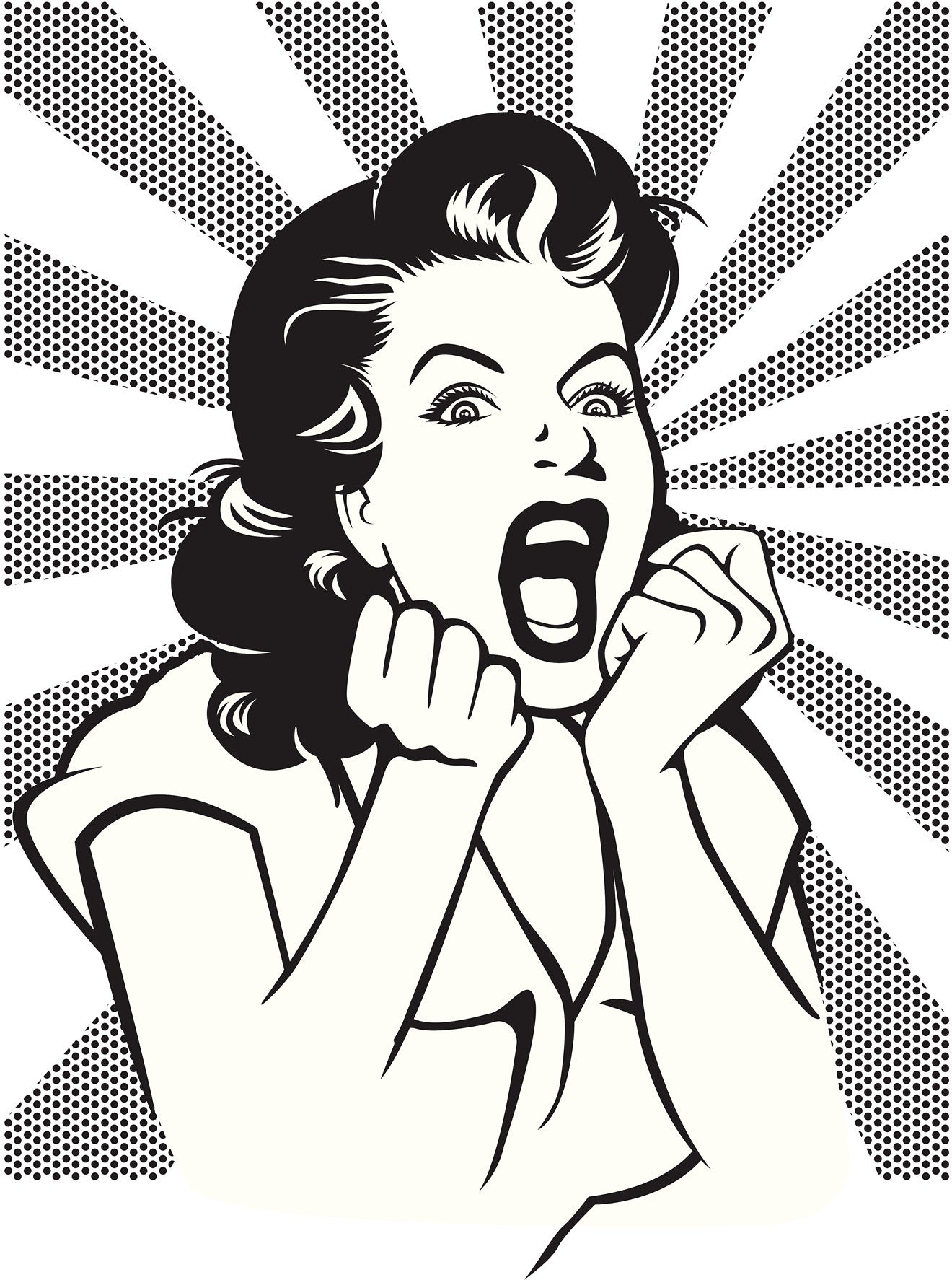 |
Bad Moms: The rhetoric and reality of American motherhoodFWIS 218, Elizabeth Cummins-Munoz, TTh 10:50am - 12:050pm From Mother’s Day flowers to political speeches to divine mothers who embody sacrifice and purity, mothers are celebrated for their selflessness and praised for their tireless labor of love – but not all of them. In culture, politics, economics and the law, notions of good mothers and bad are narrowly defined along lines of social class, race, gender, sexuality, and other markers of social identity. This course is about the “bad” moms. Over the semester, we’ll examine the distance between the rhetoric and reality of American motherhood by looking at the experiences of mothering parents who do not fit the social ideal - working mothers, immigrant mothers, mothers who are single, young, absent, sick, mothers who are mad. Along the way, we’ll use writing to explore new ideas, examine our own assumptions, and work toward deeper understandings, and we’ll practice communicating these understandings to a variety of audiences across different modes. |
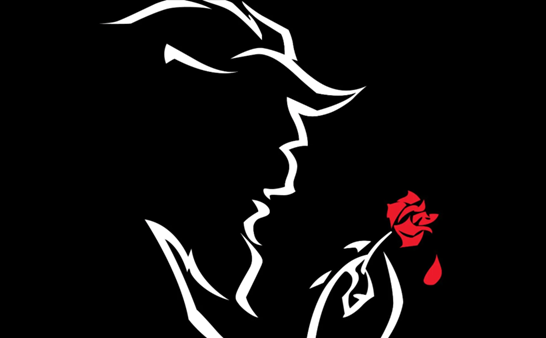 |
The Beauty of the BeastFWIS 219, Nina Cook, MWF 9:00am-9:50am There’s a reason “Beauty and the Beast” is called the Tale as Old as Time. It is a story that we, as a culture, keep telling and retelling: we are obsessed with the beauty of the beast. This course takes “Beauty and the Beast” as an object of study, examining its various adaptations in film and literature. We will engage with traditional adaptations, from Disney’s 1991 classic to the 2017 revision, and ask whether films such as Pride and Prejudice (2005), Jane Eyre (2011), and Fifty Shades of Grey (2015) can be read as interpretations of the tale. Close attention to form and content opens a space to discuss its propagandistic appeal and archetypal power. Using feminist and Marxist methods, we will think critically about how the story changes in response to cultural shifts, including ideas surrounding gender roles, toxic masculinity, and the tenuous fairy-tale conflation of goodness and beauty. |
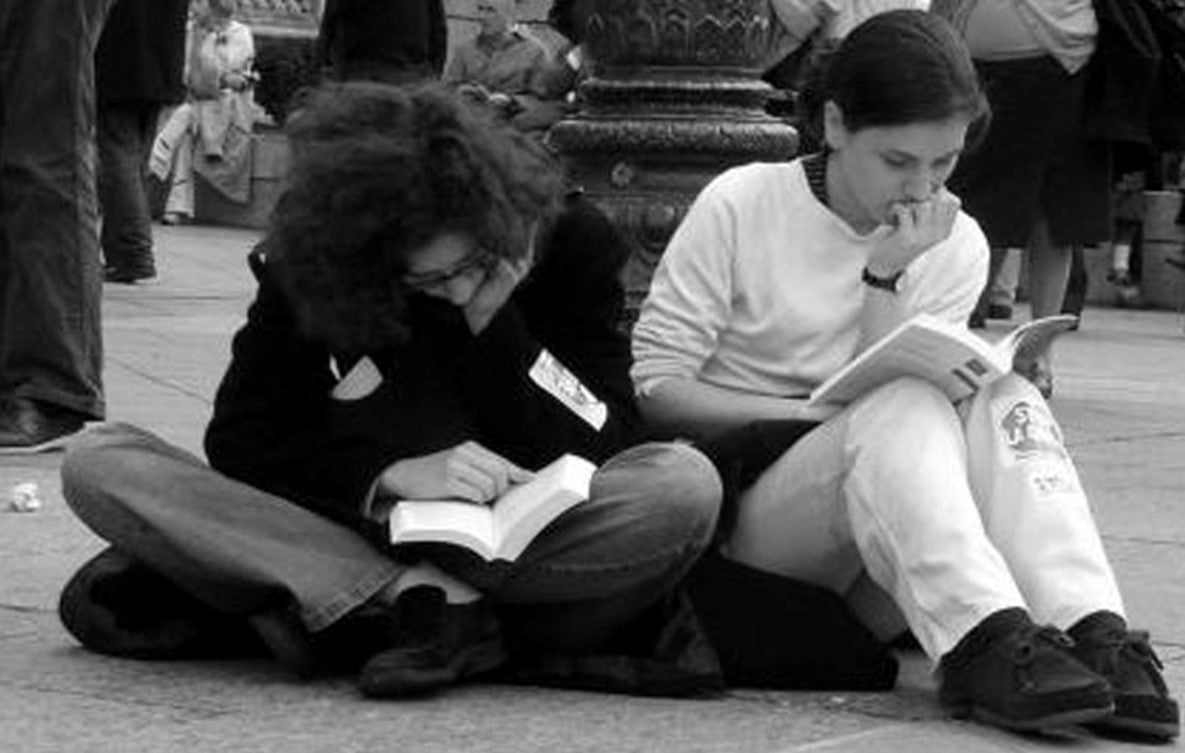 |
Fiction and EmpathyFWIS 220, Burke Nixon, MWF 4:00pm-4:50pm This course traces the history of Western interest in Muslim women, paying particular attention to how the figure of the Muslim women has been used by western feminists to make their own case for gender equality. These ideas about Muslim women have had very real consequences, serving as justifications for colonial policies in the nineteenth century, but also more recently for the US intervention in Afghanistan which was presented to the American public as a mission to save Afghan women from the blue burqas. Just this year, several French towns imposed a ban on modest swimwear, dubbed the burqini, on French beaches, describing them as unsafe and incontrovertible evidence of Muslim women’s subservience to Muslim patriarchy. Readings include the writings of different English and American feminists and feminist organizations as well as texts by Muslim authors from around the world for their take to Western efforts to “rescue” Muslim women. |
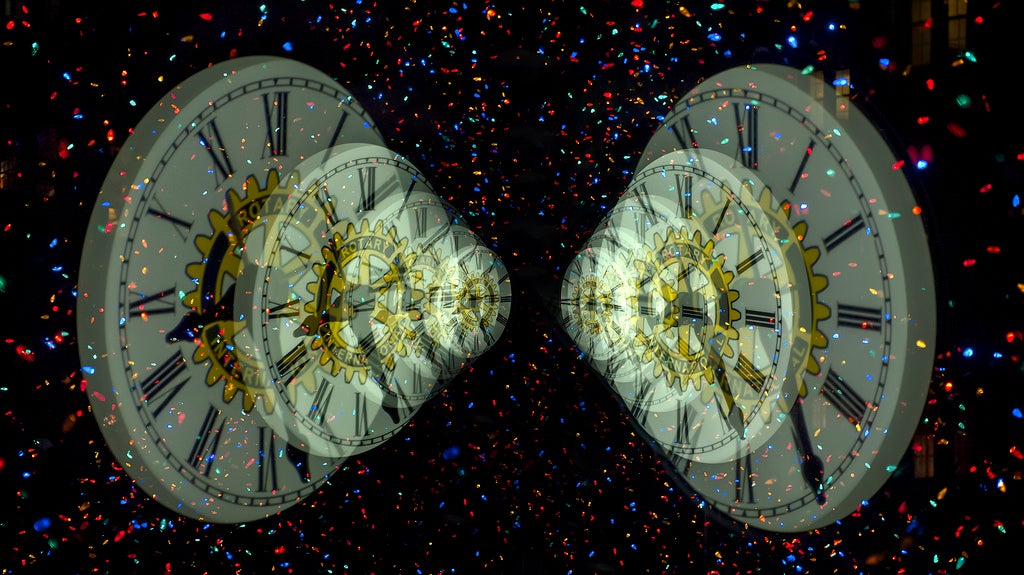 |
Time Travel NarrativesFWIS 221, Laura Richardson, TTh 2:30pm - 3:45pm From an aesthetic perspective, time travel has existed as long as there have been stories: narrative is time tourism. Narrative introduces alien temporalities, transporting listeners and readers into different temporal landscapes. In this way, stories about time travel are meta—they double back on themselves, describing the object of their inquiry with the tools of that selfsame object. As a result of this depth and possibility, authors and directors have been especially attracted to time travel narratives, beginning with force at the end of the nineteenth century with H. G. Wells’ influential The Time Machine (1895) and Mark Twain’s A Connecticut Yankee in King Arthur’s Court (1889). These and similarly seminal texts predicted and/or influenced physicists’ rising interest in the possibilities of time travel in the following decades. Throughout the twentieth century, science and science fiction participated in a shared economy of inspiration, each stirring the other to new creative potential. While this trade also manifests in post-apocalyptic tales and stories of space exploration, nowhere is it more delightful, theoretical, and mind-boggling than in the dance between theoretical physics and time travel narratives. This course investigates the historical, aesthetic, and scientific connections between the authorial and scientific co-creation of time travel. Our central quests will be to define the relationship between scientific and narrative jumps through time, as well as forge, as a class, a general understanding of how our culture represents time travel, given not just technological limitations, but also the historico-cultural limiting factors of gender, race, politics, and language. |
Animal, Plant, MineralFWIS 226, Kelly McKisson, MWF 2:00pm - 2:50pm In the talking game, “Animal, Plant, Mineral?,” players ask questions in order to identify a secret object. This game becomes tricky when an object evades our systems of categorization: is a virus an animal? Microplastics have been found in our human blood: are humans synthetic? This seminar investigates how and to what effect human knowledge systems make distinctions between forms of life, and students will analyze the unstable, often porous, boundaries between categories. Animal engages the academic discourse of animal studies by taking a nuanced stance on an issue of debate. Plant introduces critical plant studies and asks students to analyze the cultural and social significances of human-plant relations. Mineral introduces students to the critical conversations of object studies and new materialism. Students will investigate an object of their own choosing and write a “Secret Life of” Essay exploring the broader cultural, environmental, and political life of that object. |
Writing Everyday LifeFWIS 230, Lina Dib, Section 1: TTh 1:00pm-2:15pm / Section 2: TTh 2:30pm - 3:45pm This course is dedicated to the poetics of everyday life. It draws from the forms and colors of what surrounds us day-to-day, from landscapes, to bodies and objects. Students develop research and writing skills through creative fieldwork assignments and workshops. This course is eligible for credit toward the major in anthropology. |
Deep Cuts: Medicine at the MoviesFWIS 234, Brooke Clark, TTh 10:50am - 12:05pm From the viral spread of “pod people” in Invasion of the Body Snatchers (1956), the medical mystery of a housewife’s environmental or psychological illness in Safe (1995), to the horrific extremes of immortality and the myth of post-racial America in Get Out (2017), films portray medicine and health through a variety of stories and forms. With a focus on mainstream and experimental cinematic treatments of medicine, this course asks: how do films depict the intersections of science and culture? We will take on this question by analyzing film’s representations of the body, clinical practices, and healthcare institutions. By fostering written and oral communication skills, we will read the visual narratives of film critically and attentively in their content and composition, while also attending to their historical, aesthetic, and political contexts. Together, we will question how cinema informs the way we see medicine and the way medicine sees us. |
 |
Pop Music & American CultureFWIS 237, Andrew Klein This course will explore the world of popular American music by looking at a number of recent albums and songs as well as many critical and journalistic writings about music. Ranging from Celine Dion’s Let’s Talk About Love to Chance the Rapper’s Acid Rap, and from a novelistic portrayal of Black Sabbath’s Master of Reality to a memoir of the Riot Grrrl movement, these texts will also allow us to think critically not only about music itself, but about what other issues (race, gender, sexuality, class, taste, etc.) we talk about when we talk about music. Assignments will include album reviews, song analyses, genre/region presentations, and personal essays. |
Imagining the Past: Film, Fiction, and HistoryFWIS 240, Scott Derrick, TTh 2:30pm - 3:45pm In an important text from several decades ago, Benedict Anderson argued in Imagined Communities that nations construct their identities around shared narratives that necessarily mythologize and simplify their national pasts. Indeed, it’s unclear that a perfectly objective account of something as complex as a national history is even possible (though scrupulous historians do the best they can). Obviously, then, the contemporary crisis of “fake news” may simplify a complex problem if the implication is that the “real news” is easily within our grasp. The premise of this course is that in the twentieth century and beyond, movies and television have been an important ongoing source of mythologized national historical narratives, from war movies, to westerns, to “biopics” of figures such as Kenneth Turing, and Winston Churchill, to Ken Burns-style documentaries. Are their patterns of distortion at work we can identify? How do we correct them? |
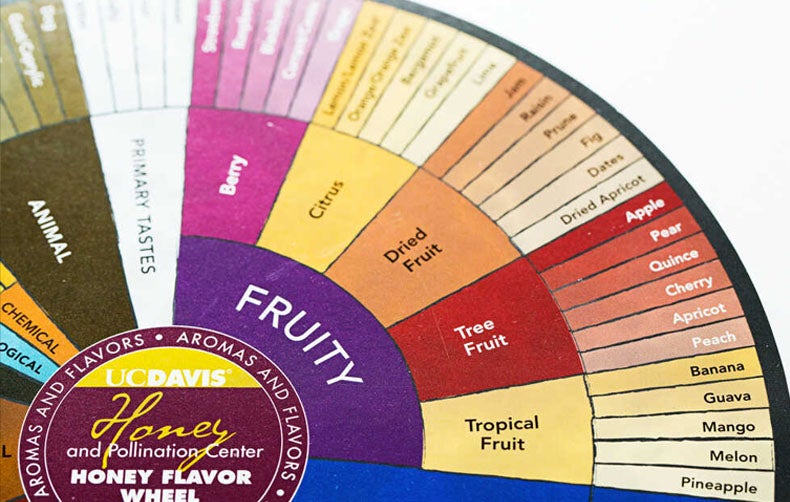 |
Technologies of TasteFWIS 241, Els Woudstra, WF 2:00pm-3:15pm Does pineapple belong on pizza? Does red Gatorade taste better than blue? Many of our favorite flavors are produced and marketed by food science and the food industry, through technologies of taste ranging from taste tests that quantify the subjective experience of flavor and smell into objective measures, to food advertisements that appeal to our tastebuds. This course investigates how technologies of taste shape our palates and the ways we think and write about what we eat. Through case studies and in-class tasting sessions of tea, chocolate, and other flavors, students will learn to analyze the sensory experience of foods, and examine the ways in which presentation, packaging, and advertisement of food appeals to our tastebuds. With assignments that include a flavor journal, academic essays, and creative projects, this course invites students to examine how their sensory perceptions influence the language they use, and how language can shape their perception. |
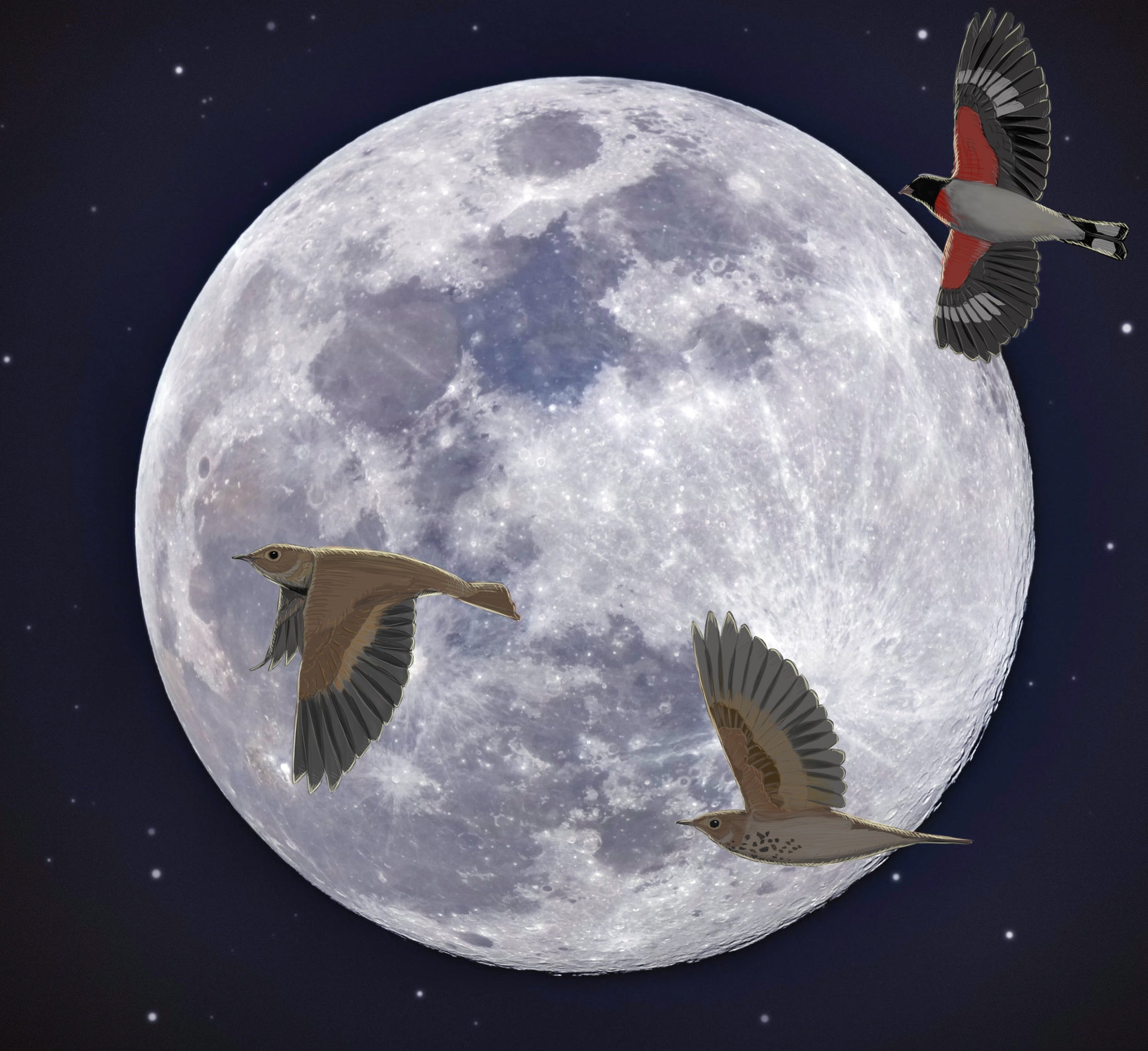 |
Natural History of TexasFWIS 243, Cin-Ty Lee, TTh 1:00pm-2:15pm Observing and communicating what one observes are key skills to have in life. Observing is how scientists make discoveries, how writer’s find their stories, or how artists create. Even in business and politics, having keen observational skills is key. The ability to have empathy for others also requires the ability and willingness to observe. This course will hone your observational skills through direct study of our natural surroundings. Students will interpret and communicate observations through a range of writing approaches accompanied by illustrations. This course will involve several field trips to immerse oneself in the geology, flora and fauna of Texas. |
Making Sense Of OurselvesFWIS 251, Burke Nixon, Section 1: MWF 2:00pm-2:50pm / Section 2: MWF 3:00pm-3:50pm Before “essay” became synonymous with school assignments and college applications, it meant something very different. When Michel de Montaigne popularized the form in the 16th century, his "Essais" were an attempt to better understand himself and the world. His version of the essay wasn’t boring or formulaic; it was a vehicle for discovery, critical thinking, and self-scrutiny. Inspired by Montaigne’s example, this course will explore and examine the essay form in all its variety and flexibility. We’ll read the work of great essayists past and present, from Montaigne to 21st century writers like Kiese Laymon, Leslie Jamison, and Zadie Smith. And, of course, we’ll write our own essays, attempting to make some sense of ourselves and the world around us, while also investigating the key differences and surprising similarities between personal and academic essays, using this knowledge to become more thoughtful and engaging writers in any genre. |
 |
The Science of SupplementsFWIS 252, Mary Purugganan, TTh 1:00pm-2:15pm This course examines the science behind some of the most highly promoted nutritional supplements for preventing or treating disease. The supplement industry has recently grown to $33 billion per year, and more than half of Americans now take supplements regularly. Because nutritional supplements are not regulated like pharmaceuticals, consumers have begun to question the safety, purity, and efficacy of these products. Students will examine the challenges in regulating supplements, the role of supplements as alternative or complementary medicine, the biology of common but complex diseases such as cancer and depression, and the molecular mechanisms of supplements’ effects on the human body. Through writing assignments and oral presentations, students will explore this rapidly growing but poorly regulated approach to improving health. |
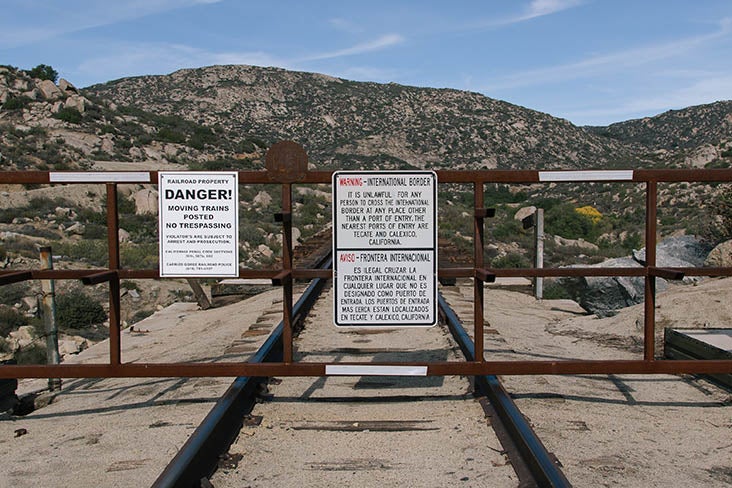 |
The Good, The Bad and The BorderFWIS 254, Elizabeth Cummins-Munoz, TTh 9:25am-10:40am This course will explore portrayals of morality in cultural texts produced in the US-Mexico borderlands. Through film, literature, music, and cultural criticism, students will examine representations of right and wrong that often conflict and many times converge in unexpected ways. As we consider perspectives from within the borderlands and without, we will also explore the ways in which border dwellers employ artistic production to expose and make meaning out of these alternative moral codes. Through the study of a variety of texts, students will be introduced to the following concepts: the nature of representation in film, literature and ballad; the border as both a physical and theoretical construct; the concept of a moral code and its relationship to cultural context. |
Travel and Modern AsiaFWIS 210, Jaymin Kim, MWF 1:00pm - 1:50pm Why do we travel, and how do we make sense of the peoples and societies we encounter that are different from us? How do we experience and remember these encounters? When did the world become globalized, and what is the place of Asia in the modern world? These are some of the questions that we will discuss in this writing-intensive course. To answer these questions, we will read and write about people who traveled across and beyond Asia. In the process, we will also challenge the common misconception that Asian societies were isolated from one another and from the rest of the world before the arrival of the Westerners in Asia in nineteenth century. In the first part of the course, we will engage with four early modern travelers: Ibn Battuta (1304-69), Matteo Ricci (1552-1610), Bak Jiwon (1737-1805), and Philiphê Bỉnh (1759-1833). These accounts will highlight the religious and scholarly worlds that extended far beyond the travelers’ local communities. In the second part of the course, we will focus on questions of continuities and changes by analyzing the writings of Fukuzawa Yukichi (1835-1901) and Eleanor Holgate Lattimore (1895-1970). Were the transformations taking place in modern Asia as dramatic and fundamental as they are commonly believed? How much more global were the experiences of Fukuzawa and Lattimore than those of the early modern travelers? In the final part of the course, the students will pose and answer their own research questions. By analyzing and contextualizing travel accounts of their choosing, they will produce research papers on the broad topic of travel and modern Asia. |
 |
Global EnglishFWIS 260,Vasudha Bharadwaj, Section 1: TTh 9:25am - 10:40am / Section 2: TTh 10:50am-12:05pm English is the most widely spoken language in the world, and there are twice as many people second language speakers as there are native users. It has been called a “world language,” a “global language,” and an “international language” and its widespread use is the result of a varied set of historical circumstances. What are the different forms of English? How does the use of English in a non-native setting affect how other languages are perceived? How do non-native / bilingual speakers of the language negotiate between multiple cultural histories and traditions? In this course, students will consider how sociocultural, political, and economic factors have historically influenced decisions about education and language use, particularly regarding English. In doing so, they will practice different forms of academic communication including discussion, writing, and presentation, and refine skills fundamental to their success as critical thinkers, readers, and writers. |
Sex, Death, and Spiritual WritingFWIS 263, Cameron Dezen Hammon, MWF Synchronicities, angel numbers, soul mates, UFO sightings, and horoscopes— these are just a few of the ways modern spirituality— and spiritual anxiety— expresses itself, writ large by the wild popularity of “spiritual” influencers on social media. In this course we will look at a variety of historical and contemporary “spiritual but not religious” texts, both literary and visual, and discuss how ideas of spirituality shift and change over time and across cultures, and how they stay the same. Through close reading, we will look at the way these texts grapple with the most profound mysteries and challenges of human life, allowing us to dive into the larger questions of sexuality, mortality, race, gender, class, and politics. Students will engage in collaborative writing, and workshop early drafts of their assignments in small workshop groups. This course will foreground discussion and reflection, and students will write weekly discussion posts on canvas, in addition to the three major papers including a film review and a group presentation. The instructor will meet one on one with each student during the semester. |
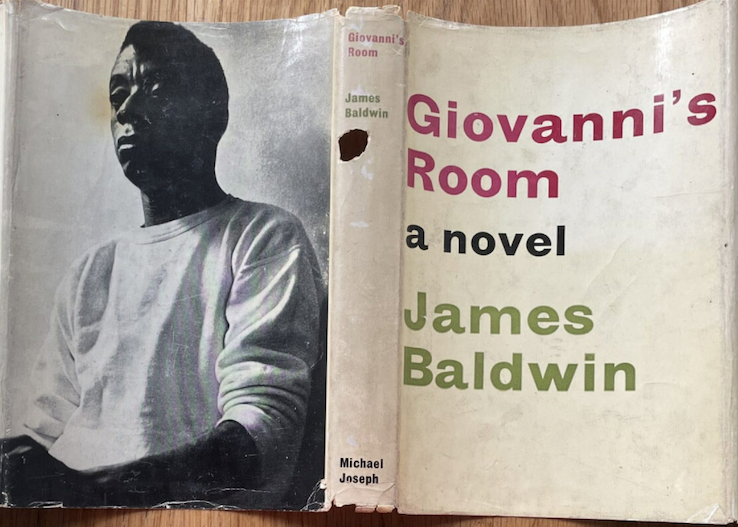 |
Contemporary LGBTQ+ Literary ClassicsFWIS 273, Brooke Clark, TTh 9:25am-10:40am At first glance, the terms “LGBTQ+”—as an underrepresented population shaped by an array of sexes, genders, and sexualities—and “literary classics”—as a set of traditional, timeless, and widely read novels—may not seem to mesh well together. However, novels written by and featuring gay, lesbian, queer, and trans individuals have become more visible along with the increasing public and political presence of the LGBTQ+ community. In this course, we will read American, African American, and Asian American novels from the 1950s to the present day that have had transformative impacts on art, public thought, and political activism. We will learn how to read and write critically about these novels' contents and styles as well as question how artistic portrayals of LGBTQ+ experiences and the idea of the classic can work together to create not only new stories to tell but new ways to tell these stories. |
Sounding The CityFWIS 274, Andrew Klein Sound surrounds us. And yet we often put little thought into what role it plays in our lives and the lives of our public spaces. This course aims to correct this oversight by offering an introduction to the field of sound studies focused on Houston’s audio environment, past and present. We will approach the topic in four ways. First, through an investigation into the audio epistemologies of sound studies. Second, through a cultural history of Houston’s musical legacy and the way in which aesthetic styles can be traced to local geographies. Third, through the production of a guided audio tour into one of Houston’s neighborhoods. And fourth, through a collaborative audio mapping project. In addition to developing students’ interpretive toolkits, critical thinking skills, and writing abilities, the course seeks to raise a number of key questions about the aesthetics, poetics, and politics of sound in the bayou city and beyond. |
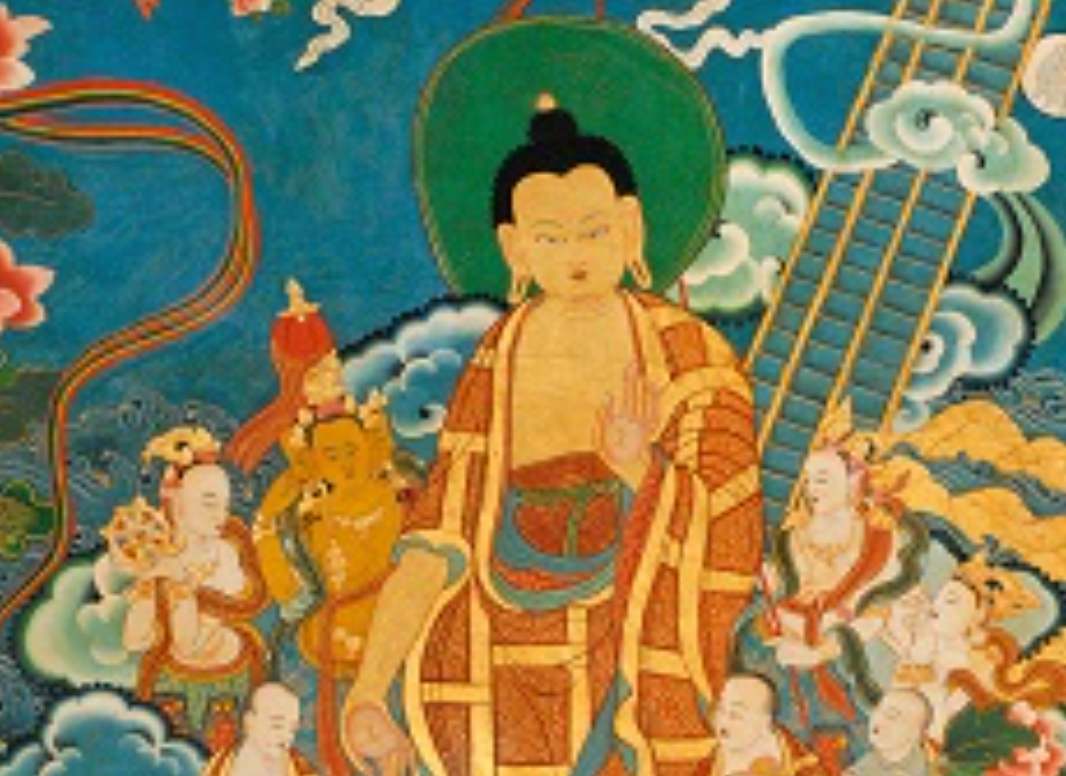 |
Storytelling in BuddhismFWIS 277, Eric Huntington, TTh 1:00pm-2:15pm This course explores the forms and contexts of storytelling in Buddhism, with a broad eye toward literature, visual arts, and performance. Students engage in both creative and academic writing to understand the importance of narrative in Buddhist cultures and different approaches to writing in the modern day. |
Innovations in Educational TechnologyFWIS 280, Ali Garib, TTh 2:45pm-3:45pm Over the course of history, technology has played a crucial role in education, from the invention of the printing press, the use of computers in the classroom, to students’ use of educational technology outside the classroom. Today, with the rapid advancements in technology, the potential for new and innovative approaches to education is greater than ever before. In this course, we will cover a wide range of topics, including mobile learning, virtual and augmented reality, gamification, and artificial intelligence. By the end of this course, you will have a better understanding of the latest trends in educational technology and how they are transforming the way you learn. While gaining insights into these topics, the main goal is to provide you with an opportunity to develop your writing and communication skills through a variety of readings and assignments. |
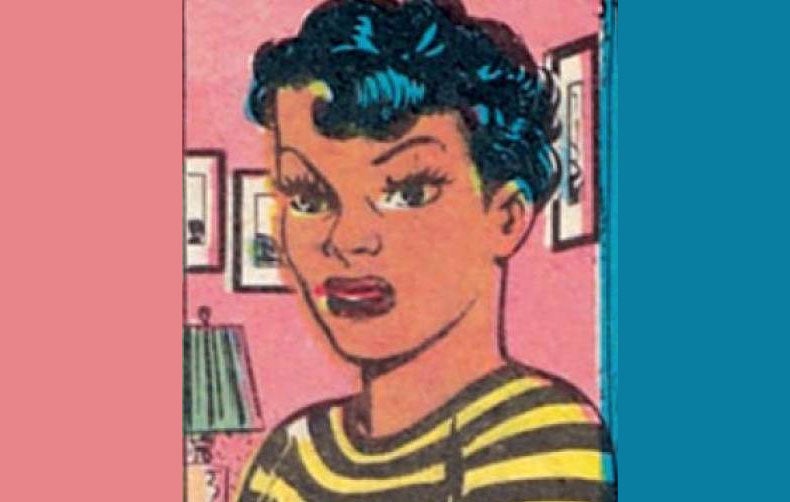 |
African-American Graphic NovelFWIS 281, David Messmer, TTh 1:00pm-12:05pm This course examines the struggle for black representation in comics and graphic novels. We will discuss the unique opportunities that sequential narratives present to creators as they represent race on the page and we will examine the history of black artists working in the comic book industry. |
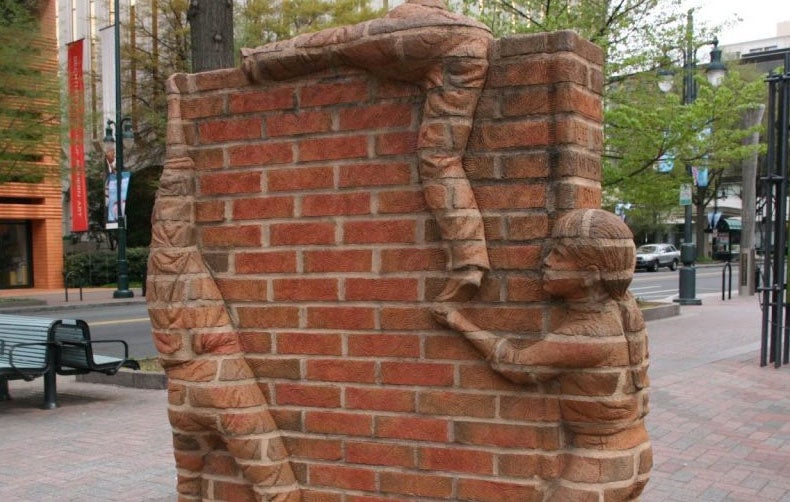 |
Border Politics: Migrations and the Meanings of the NationFWIS 282, Hubert Rast, MWF 10:00am-10:50am In the midst of a global climate and migration crisis, the safeguarding of borders has become an increasingly contentious issue worldwide. Borders demarcate territories, establish differences, and constitute sites of division and violence that are linked to the existence of states. In this course we will explore the perilousness of the human condition, as experienced in the crossing of real and imaginary borders, and in the traumatic loss of homeland and self. We will examine the ways in which environmental crises have uprooted people and probe how climate change and migration pressures may redefine existing borders and boundaries of states. Borders also arise within major cities, through the building of highways, the politics of zoning and real estate investment, creating urban borderlands along economic or racial lines, which this course will also explore. The city of Berlin offers a contrasting example of urban borders: divided into East and West sectors by the Berlin wall (1961-89), the city became the frontline of the Cold War. Finally, we will delve into the changing meaning of the border between the US and Mexico through a range of testimonies, stories and films. |
Minorities and Subcultures in East AsiaFWIS 286, Sidney Lu, TTh 10:50am-12:05pm This course challenges the myth of homogeneity in the understanding of East Asian societies by examining the experience of a variety of minority groups in terms of ethnicity, gender, religion, class, occupation, as well as physical and mental conditions. The course further analyzes the various ways in which the social construction of these minorities defines what the “mainstream” is. The course transcends the national boundaries in the East Asian region and connects and compares similar themes in the societies of Japan, China, Taiwan, and South Korea. It discusses how the marginalized groups, in their own ways, profoundly influence the government policies and transform the mainstream societies. We also take account of our own location in a classroom in the United States. Through the lens of East Asia, the course provides students a sophisticated understanding of uniformity and diversity in modern societies around the world in general. |
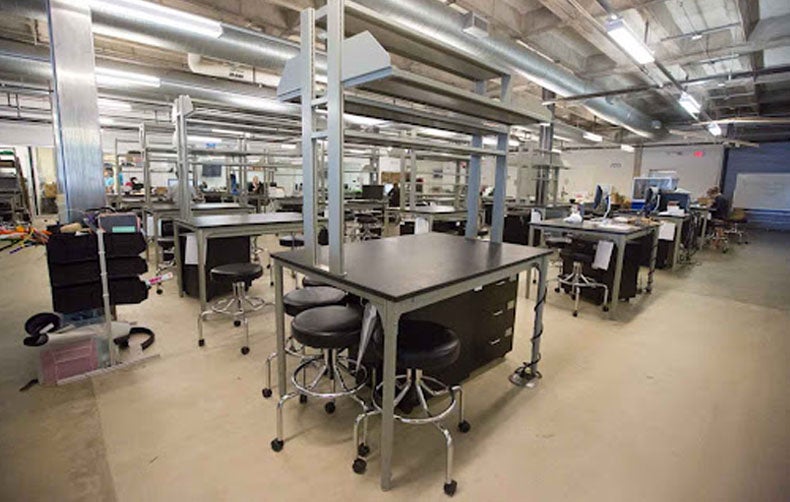 |
Eng Design & CommunicationFWIS 288, Kevin Holmes, Section 1 TTh 9:25am-10:40am / Heather Bisesti, Section 2 10:50am-12:05pm First-year students learn the engineering design process and use it to solve meaningful problems drawn from clients such as local hospitals and medical facilities, other local and international companies and organizations, and the Rice University community. Students work collaboratively on a team to design an engineering solution to meet the client’s need, and they use the resources of the OEDK to construct innovative solutions. Documentation is an essential element in the engineering design process. Engineers must be able to communicate the need for a novel design, numerical design objectives, ideas for solutions, and the success or failure of a project. During the engineering design process, students interact and communicate with teammates, the project client, instructors, and potential users. This course covers the same technical content as ENGI 120, Introduction to Engineering Design. This course places additional emphasis on an individual’s development of the written and oral technical communication skills necessary for professional practice, especially results-oriented technical memos and oral presentations. |
Black Contemporary ArtFWIS 290, Olivia Young, T 2:30pm-5:00pm This course introduces students to the dynamic field of black contemporary art. How is a new generation of black art making shaping the way we think about race, gender, sexuality, and disability? How have expressions of self-representation changed over the decades and how do we begin to understand the political stakes of who is seen, who is overseen, and who is made invisible. This FWIS course will expose students to different concepts in the interdisciplinary fields of black studies, feminist studies, visual culture, queer theory, and disabilities studies. By the end of the semester, students will know the steps in writing a successful argument-based paper. The course ends with the creative development of an analytical essay on an art object of the student’s choice. This assignment is methodically organized over the semester to encourage each student to develop an argument that arises from their own close reading, application of theory, and lived experiences. |
The Art of the Short StoryFWIS 291, Laura Richardson, TTh 4:00pm-5:15pm The best short stories leave you with a strong emotional response and a sense of awe at how quickly and masterfully a deft writer can create a world and connect you to its characters. What techniques help authors achieve these effects? And what, beyond word count, defines the unique, dynamic genre of the short story? How exactly does the length of a piece of writing connect to its expression as a work of art and our interpretation of it? In this course, we’ll consider “shortness” as a challenge authors undertake, investigating the ways they weave complex tales into brief, often pithy, masterpieces. Reading a global array of short stories, including selections from the U.S., Great Britain, Latin America, and Russia, we will also seek to understand the short story gene within its national traditions. What kinds of similarities and differences emerge when we make cross-cultural comparisons of twentieth and twenty-first-century short stories? We’ll investigate the ways genre and culture converge to shape the stories we tell and the way we tell them. |
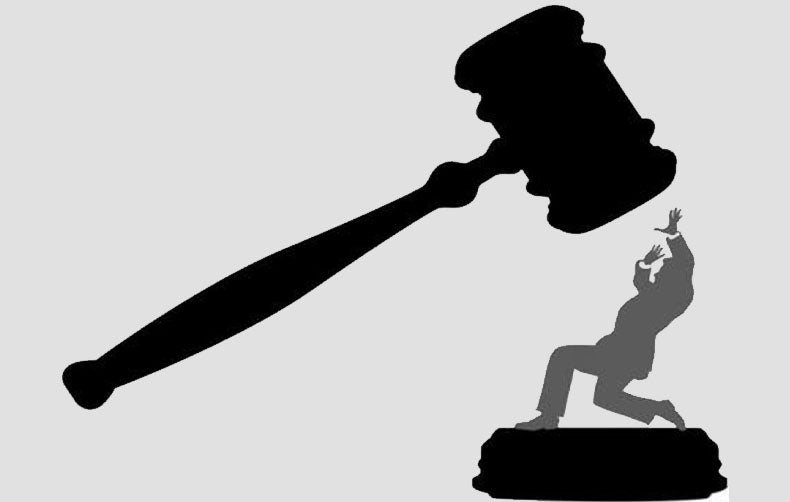 |
The Rule of Law and the Pursuit of JusticeFWIS 293, Hubert Rast, MWF 1:00pm-1:50pm Democratic societies claim to be based on the rule of law. This course examines what is required of a society that treats every individual equally regardless of a person´s status or influence. Presently, concerns arise that the courts, which are supposedly independent in their adjudication of the law, increasingly rely on ad-hoc “rule-making” to accommodate powerful individuals or interest groups. We will analyze the relationship of politics and the law in the distinct historical and national contexts of the contemporary US and post-war Germany. We will consider instances in which the judiciary has been politicized in the United States and its repercussions for the rule of law. Furthermore, we will explore the topics of crimes, guilt, punishment and vigilante justice in selected literary texts and films (Schirach´s Crime/Guilt and The Collini Case, as well as Franz Kafka´s The Judgment). We will also scrutinize the sordid judicial history of Germany in the aftermath of the Third Reich drawing on Bernhard Schlink´s The Reader. |
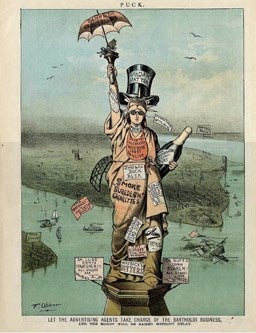 |
Business in the American ImaginationFWIS 296, Scott Pett, TTh 4pm-5:15pm Because the world of business is so full of glass ceilings, corporate ladders, backroom deals, black markets, and human resources, it has always been a culturally rich site for national and self-reflection. In our analyses of literature and film, we will continually ask: what can these texts teach us about the ethics of pursuing happiness and success? How have such types and tropes as the working class, the self-made man, the con artist, and “the art of the deal” shaped our notions of the so-called American Dream? How do work-life and work-place narratives address and shape issues of opportunity, especially in terms of class, education, gender, immigration, and race? On the road to discussing such questions and improving our written and verbal communication skills, we will consider an array of allegories, motifs, and plots about the profits and pitfalls of American commerce culture. |
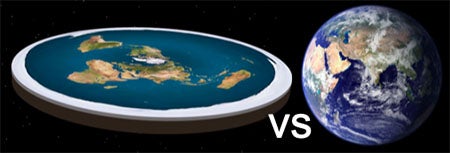 |
Science Or Psuedoscience?FWIS 297, Michael Cone, MWF 3:00pm-3:50pm Is anthropogenic climate change real? Do vaccines cause autism? Are genetically modified crops safe? What is homeopathy? Questions like these illustrate the difficulty that so often arises when dealing with the plethora of complicated topics and issues that are pervasive in modern culture. We can’t be experts in every field, so how do we tell good science from pseudoscience? This course aims to address this issue by focusing on the application of scientific skepticism and critical thinking to questions like those mentioned above, and many others. We will discuss the inherent fallibility of human perception and memory, as well as the cognitive biases and logical fallacies that we so often fall victim to. We will apply these concepts to various examples of pseudoscience. The topics will range from the absurd (astrology, flat earth theory), to more sophisticated and controversial examples that have significant societal impact (climate change denial, alternative medicine). |
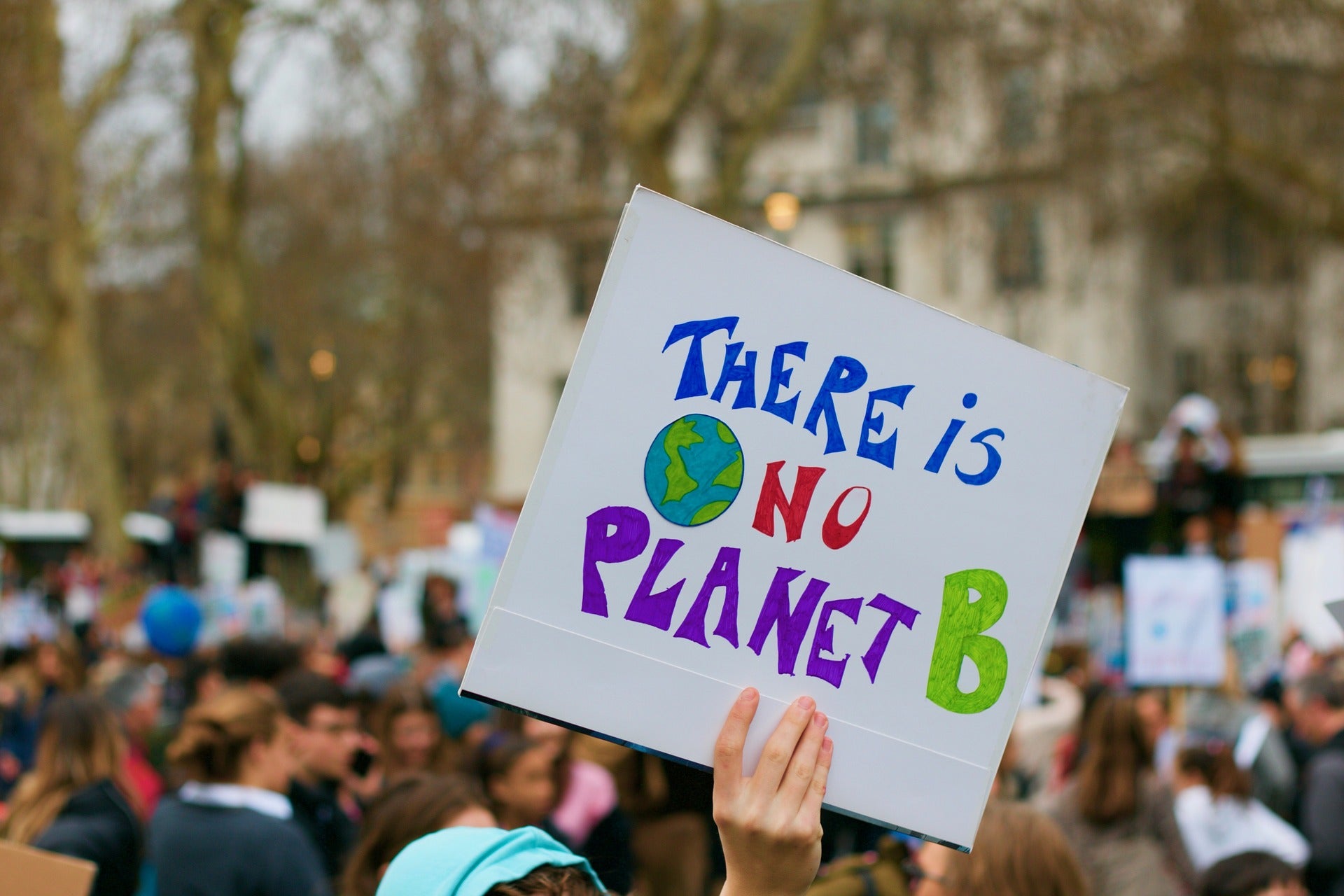 |
From Climate Change to Climate JusticeFWIS 298, Kelly McKisson, MWF 9:00am-9:50am For the so-called “climate generation” the need to take action and address dire outcomes projected by climate science is clear, especially given environmental effects we are already facing. What makes climate change so difficult to act on, however, is that it is not only an environmental problem but also a social, economic, and political one. In this seminar, students will learn about these elements of climate change, ask how environmental issues intersect with ideas of justice, and investigate various appearances, contexts, and critical uses of the term “climate justice.” Varied examples of climate communication will help us to see the climate crisis as a moment for action and will provide us with models of actionable strategies to join in the discussion. |

